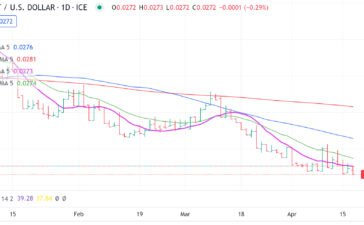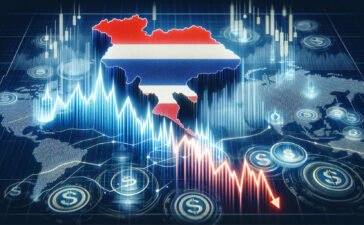The Stock Exchange of Thailand ended its dramatic three-day tumble with a gain of 4.71 per cent yesterday, on hopes that euro-zone nations are planning steps to rescue debt-riddled nations. However, stock analysts expect more foreign sell-offs after the “technical rebound”, on uncertainty over any measure being capable of permanently ending the euro-zone debt woes. Asian markets rebounded on bargain-buying yesterday after recent heavy selling, but investors remained cautious after mixed reports. All eyes and ears were on Greece, the epicentre of the euro-zone problems, where lawmakers were preparing to vote on a property-tax law to help the country in its quest for overseas support to avoid defaulting on its debts.
Thai shares recouped some losses. The SET Index gained 42.56 points to 946.62 at close. “It’s just a brief technical rebound, though,” said an analyst from Kim-Eng Securities (Thailand). “Although the European Central Bank is expected to inject liquidity into the system, this will just buy time and this is not a clean solution. Therefore, stock markets remain under pressure.” He foresaw a chance that the SET Index would slip to 850 points.
A research note from Finansia Syrus Securities warned of a risk of further sell-offs in Thailand, Indonesia and the Philippines. Last year, their average return was 25 per cent and so far this year, they have outperformed other Asian markets. In the year to date, as of Monday, the Thai market had lost 12.5 per cent, Indonesia 10.5 per cent and the Philippines 11.4 per cent. The note said that in Thailand, foreign shareholdings worth Bt61 billion had been sold from August to September 26. Foreign investors had also unloaded bonds, which had helped to weaken the baht to an eight-month low. Although the Thai market’s price-earnings ratio has fallen to 10 times, there was a time when it was as low as 7 to 9 times.
Amid the trend of capital outflows, market pressure could continue, it said. Asia Plus Securities’ research showed that from July 23, 2010, to January 5, 2011, foreign net buys totalled Bt104 billion. Despite two rounds of sell-offs, about Bt62 billion remains invested in Thai shares, the broker said. Foreign holdings through non-voting depository receipts (NVDRs) fell to 5.8 per cent from 6.3 per cent early this year. The ratio previously bottomed at 4 per cent, and this could reoccur should the global economy remain subdued. Banks, property and construction materials are the top three sectors for investment through NVDRs. As of September 23, the stocks accounted for 13.3 per cent, 7.9 per cent and 7.4 per cent of the total, respectively.
SET chairman Sompol Kiatphaibool gave an assurance yesterday that there was no political attempt to halt the market plunge when trading halted briefly on Monday. He insisted that it was a technical problem and that the circuit breaker was functioning well. After Monday’s 9.42-per-cent plunge in Thai shares, the Federation of Capital Market Organisations proposed that the government set up a market-support fund to buy stocks with good fundamentals. Prime Minister Yingluck Shinawatra said yesterday that the government was now in a “wait-and-see mode”, in the hope that solutions for the euro-zone debt crisis would instead boost the global economy and stock markets along with it.
Overseas factors remain under close attention. European leaders will this week ratify an overhaul of the euro rescue fund, pledging success in the struggle to restore balanced budgets. Greek Finance Minister Evangelos Venizelos promised “superhuman efforts” hours before a vote in Athens on an unpopular property tax needed to avoid default. While German Chancellor Angela Merkel promised her country’s help for Greece, US President Barack Obama said European leaders had acted too slowly. His treasury secretary, Timothy Geithner, said Europe had “not very much time” to act. In another development, Spain’s finance minister dismissed talk of euro-zone leaders boosting their €440-billion (Bt18.45 trillion) European Emergency Finance Fund to as much as €2 trillion. She said it was necessary to strengthen the fund, but “a strengthening does not necessarily mean an increase”.
Source: The Nation





